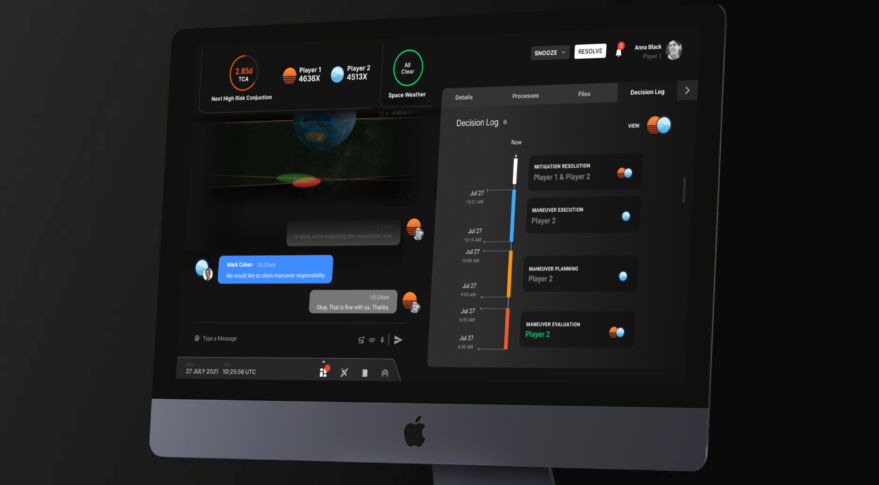
Slingshot Aerospace closes $25 million fundraising round (Image Credit: Space News)

WASHINGTON — Slingshot Aerospace, a company that develops technologies for space situational awareness, announced March 10 it has raised $25 million in Series A-1 funds.
The company has raised $42 million since it was founded in 2017. The new round was oversubscribed, said CEO and co-founder Melanie Stricklan. “We set out to raise $20 million and stopped at $25 million,” she said.
The funding round was co-led by Draper Associates, the venture capital firm of Silicon Valley investor Tim Draper, and ATX Venture Partners. Other participants included Edison Partners, Embedded Ventures, Valor Equity Partners and Lockheed Martin Ventures.
Slingshot will use the new funds to accelerate the commercialization of Slingshot Beacon, a space collision avoidance platform where commercial, government and civil satellite operators can share space traffic information.
Stricklan said the company plans to hire 40 employees over the next 12 months. Slingshot is based in Austin, Texas; and Los Angeles, California.
“Space situational awareness is ripe for disruption,” said Daniel Herscovici, partner at Edison Partners. “No common platform exists for satellite operators to communicate and collaborate in real time with actionable information to resolve on-orbit conjunctions.”
A lot of investment is going into rockets and satellites but less attention is paid to the “critical infrastructure that is necessary in order for these objects to be successful in space,” said Jenna Bryant CEO and co-founder of Embedded Ventures.
For humans to continue to operate in space, a digital infrastructure to manage traffic and data transparency is key, said Stricklan said.
An estimated 115,000 satellites will be in orbit by 2030, she said. “We need to be holistic and not draw lines between the civil, defense and and commercial industry when it comes to space domain awareness.”
“You have to be able to predict the events that are going on,” Stricklan said. “And I think the government has to embrace the digital transformation that allows for that to happen and in order to do that, data can’t be in classified silos. So we’ve got to break those walls down. If we can predict it, then we can mitigate it.”
Congestion will worsen as more constellations are deployed, coupled with uncontrolled debris, she said. The space community should be worried about “geopolitical aggressive behavior” like Russia’s anti-satellite missile test in November that blew up a spacecraft in low Earth orbit, creating a large cloud of debris.
“I think Russia is pretty unpredictable,” said Stricklan. “So we’re really concerned, given the current events and the deliberate reckless anti-satellite test that that they conducted against their own satellite with their own cosmonauts on orbit. It was a travesty.”








